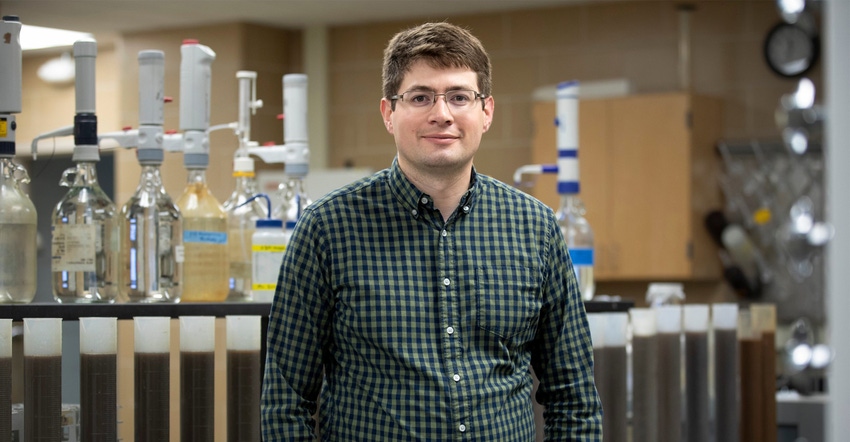December 15, 2022

The University of Wisconsin-Madison Soil and Forage Analysis Lab, a trusted resource for soil testing services used by farmers, gardeners, researchers and others, has moved to a new home — physically and administratively. Formerly housed at the university’s Marshfield Agricultural Research Station in the College of Agricultural and Life Sciences, the lab is now part of the Wisconsin State Laboratory of Hygiene and located in a WSLH facility in Madison.
“The Soil and Forage Analysis Lab is a great addition to the State Lab of Hygiene, as we already offer a wide variety of tests related to public and environmental health, primarily focusing on water and air,” says Jamie Schauer, WSLH director and professor in the Department of Civil and Environmental Engineering at UW-Madison. “This addition will serve as an engine to drive research and promote activity in the space of soil, with the big-picture goal of studying and supporting a healthy environment.”
Faster results
The WSLH, established in 1903, is part of UW-Madison and serves as the state’s official public, environmental and occupational health laboratory. It provides analytical services, research and development, public health programs, laboratory proficiency testing, and training and education of students and professionals.
The Soil and Forage Analysis Lab offers a suite of soil testing packages, including for farm, lawn and garden, turfgrass, and forest soils. It also offers a wide variety of individual tests, quantifying single compounds or nutrients found in soil, forage, manure and plants.
“One of the main advantages of joining the WSLH are the more modern facilities,” says Andrew Stammer, manager of the Soil and Forage Analysis Lab. “It’s great being in our new space, and we also have some new equipment at our disposal — including a soil dryer that really speeds up our soil drying times.”
For soil to undergo testing, it first needs to be dried. Quicker drying times paired with updated equipment and improved space has allowed the soil lab to complete tests faster, which means customers are receiving their results and recommendations in a more timely way.
The lab processes thousands of samples in an average week. Soil results often include information about pH, organic matter, phosphorus, potassium and micronutrients, and can include nitrogen and texture. Forage tests are helpful in revealing the “nutrition facts” of a sample, such as fat, protein and starch. Manure is often tested for nutrients such as nitrogen, phosphorus, potassium and sulfur.
These tests aid a variety of people in Wisconsin and around the U.S. They support the efforts of farmers, crop consultants, Extension educators, homeowners and gardeners. These customers contribute to about half of the lab’s testing volume.
The other half is research-related testing. The lab processes a large volume of research samples for scientists at UW and other institutions, and offers specialized research services, too. Researchers collaborate with lab staff to develop new, innovative testing methods needed for their research projects, many of them agriculture- and sustainability-related.
“We’re very unique in that we’re a bridge between UW-Madison researchers and the agricultural community,” Stammer says. “We also run the Wisconsin Department of Agriculture, Trade and Consumer Protection’s lab certification program, where we work with private labs to assess and certify the soil tests they offer.” This certification program for private labs ensures consistent, quality testing for customers around Wisconsin.
More services
From its new home, the Soil and Forage Analysis Lab looks to expand its services across the state and strengthen partnerships across campus.
“For more than 100 years, the Soil and Forage Analysis Lab has provided valuable services to the state of Wisconsin, and we know this important work will continue in the Wisconsin State Lab of Hygiene,” says Alfred Hartemink, professor and chair of the Department of Soil Science. “It’s a great example of the Wisconsin Idea in action.”
For information about services and prices, visit the UW Soil and Forage Lab website or call 608-262-4364. The Soil and Forage Analysis Lab is located at 4702 University Ave., Madison, WI 53705, where samples can be shipped or dropped off. Samples are still being accepted at the former Marshfield location, 2611 Yellowstone Dr., and are transported to Madison.
Skalitzky works for the UW-Madison College of Agricultural and Life Sciences.
You May Also Like




